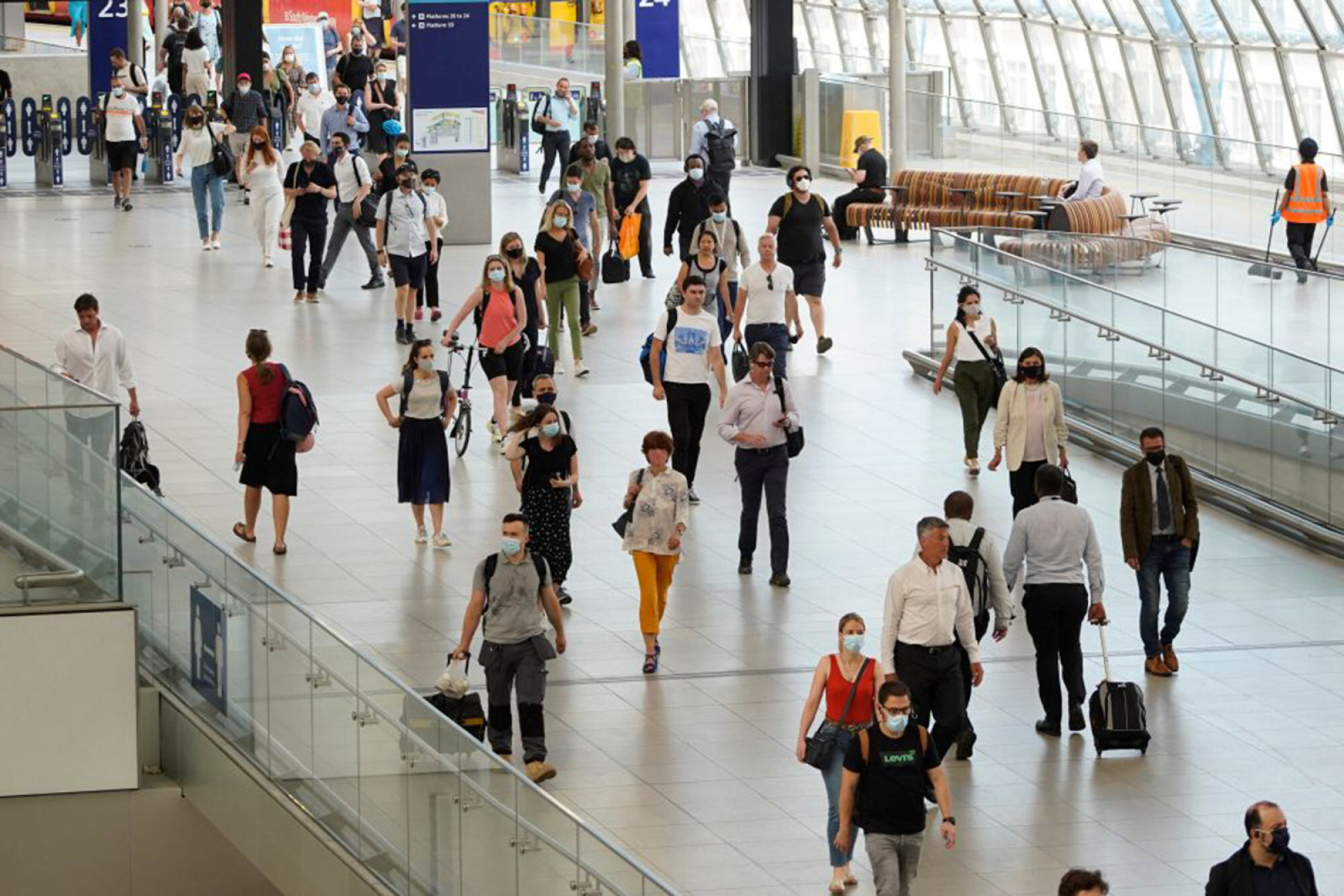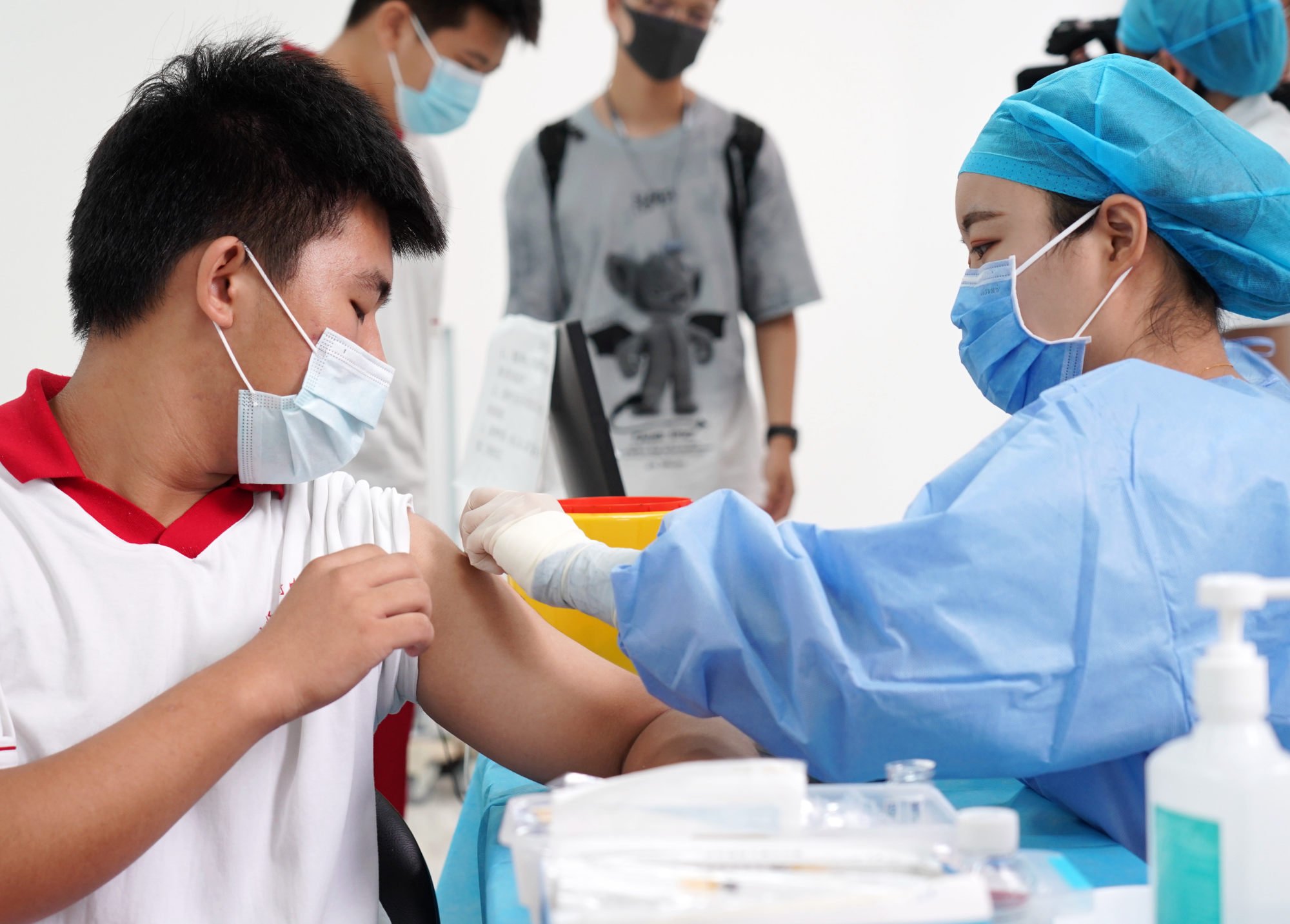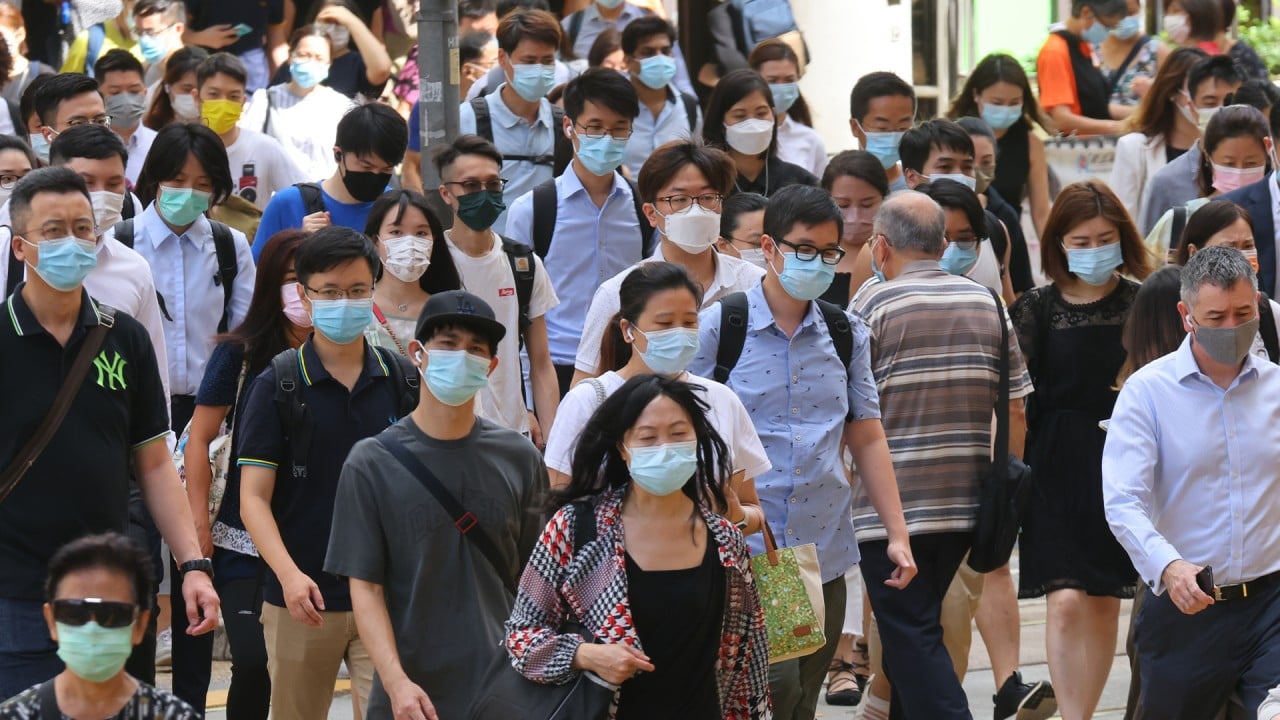
When will China open its borders? Non-Chinese vaccines might speed up the answer
- China’s ‘zero-Covid’ approach has been successful, but it risks leaving the country increasingly isolated as others open up
- Approving inoculations such as Pfizer-BioNTech will accelerate progress towards herd immunity, and help China re-engage with the world
Clearly, those countries have chosen the approach of accepting low levels of daily cases to restore international travel and drive their economies forward.

China has taken the opposite tack. It may be the first major economy to have brought the virus under control, with its people’s movements largely returning to normal, but it looks increasingly likely China will be among the last to open its borders.
Leading Chinese scientists advising the leadership have now said that the earliest the country can restore international travel is the first half of next year.
Understandably, such estimates have raised concerns among international investors and in the overseas media that China could risk turning inward and further isolating itself from the world at a time when its confrontation with the US and its Western allies shows no sign of letting up, despite Beijing’s repeated public commitments to engage in high-level opening up to the outside world.
From Mao and Xi to the Snows, does their legacy in Yan’an define China’s future?
Even if Chinese leaders hear those concerns, there is no way of telling whether they will soon act to address them.
In fact, they appear to have doubled down on the strategy of achieving zero Covid-19 cases. Indeed, official media reports often tout China’s daily report of double-digit new cases – most of which are imported – as a sure sign of the superiority of the Communist Party’s authoritarian controls, compared with the chaotic efforts and surging caseloads in many Western countries.
Occasionally, when a new domestic cluster of infections occurs, no matter how small, local authorities respond promptly with the most stringent controls, including lockdowns and mass testing.
The latest example is the city of Nanjing, the capital of Jiangsu province – one of China’s most economically dynamic regions. After 17 cleaners working at the local airport tested positive for Covid-19, the city not only put a number of districts surrounding the airport under strict lockdown but also urged the rest of its 10 million residents to not leave the municipality, and ordered them to undergo swab tests overnight.

Meanwhile, China has put in place strict controls on travellers entering the country, limiting entry mainly to mainlanders and a small number of foreign business executives. All travellers will have to undergo mandatory swab tests and at least three weeks of quarantine, the first two weeks at state-approved hotels and one more at home under the watchful eyes of neighbourhood committees.
China will soon start a drive to inoculate those between the ages of 12 and 17, followed by children from age three and upwards, with the aim of having 80 per cent of its population vaccinated by the end of this year and establishing so-called herd immunity.
If China succeeds in achieving that target, will the government be persuaded to change its “zero Covid” mindset and consider opening its borders?
China should open the Wuhan lab – if US does the same at Fort Detrick
Chinese scientists have warned that this remains unclear with the emergence of strains such as the highly contagious Delta variant.
Zhang Wenhong, a well-known infectious disease specialist, recently said China would not follow the US and other Western countries in opening its borders this year.
But Zhong Nanshan, China’s top epidemiologist and perhaps the most trusted voice on Covid-19, is even more cautious. On the question of when China will reopen, he said this month that “no country is safe until all countries are safe”, adding that China’s decision would depend on global efforts to contain the virus.
The World Health Organization has urged international leaders to work together to ensure 70 per cent of the world is vaccinated by July next year, which is a tall order given vaccine shortages and other logistical issues.
It is true that China can afford to be in no hurry to open its borders because strong domestic consumption and booming exports have kept its economy buoyant.
But as more countries choose to open up, China’s approach risks leaving itself increasingly isolated in reality and in perception.
To avoid that, China should prepare for a fundamental shift away from its “zero Covid” mindset once it achieves its 80 per cent vaccination target and reaches herd immunity by the end of the year.
But that will not be easy. China’s successful approach, constantly praised by state media, has raised the people’s expectations to such a level that even one new local infection would cause national alarm and force local authorities to take stringent action.
The government could begin educating the population by allowing public debates, led by scientists and doctors, on the inevitable shift to accepting mild infections.
Hainan faces an uphill struggle to catch Hong Kong, Singapore and Dubai
Secondly, the Chinese government must act quickly to approve non-Chinese vaccines such as the Pfizer-BioNTech jab. According to executives from Fosun Pharma, a Shanghai-based company which has secured the rights to distribute that vaccine in China, the clinical trial process and expert reviews have been completed and the inoculation is awaiting the final go-ahead from regulators.
It remains unclear why the regulators have been dragging their feet. The Pfizer-BioNTech vaccine, which uses mRNA technology, has a much higher efficacy rate than Chinese inactivated viral vaccines.
Approving the Pfizer-BioNTech jabs immediately will send a positive signal of continued opening up while placating China-based foreigners who want to have the choice of a foreign vaccine.
It may also speed up China’s vaccination rate and help it achieve herd immunity, so China can fully re-engage with the international community sooner.
Wang Xiangwei is a former editor-in-chief of the South China Morning Post. He is now based in Beijing as editorial adviser to the paper.


